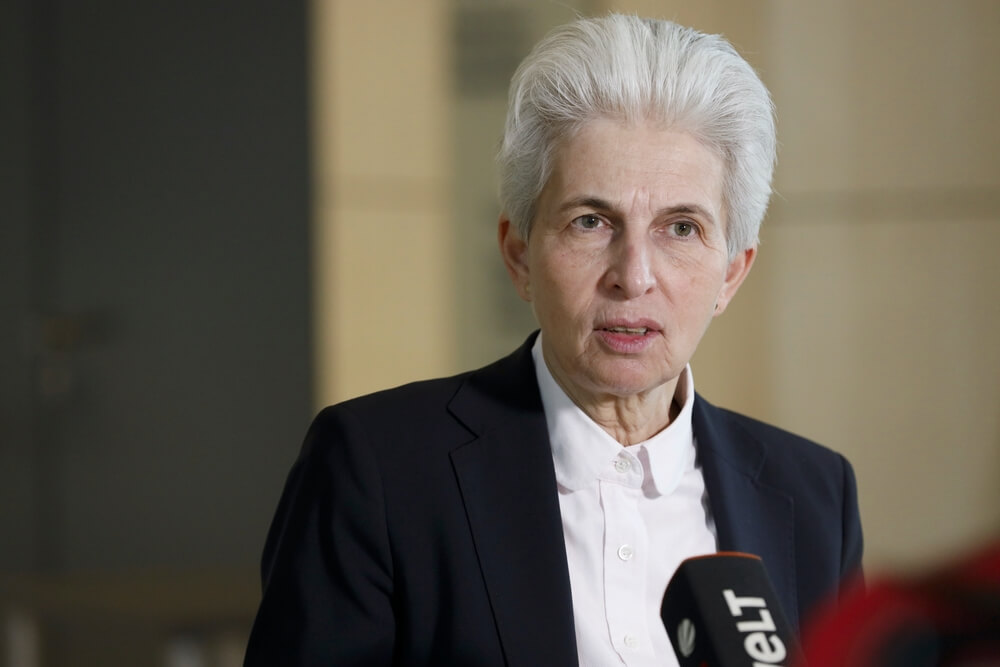The German army would have to recruit at least 75,000 additional soldiers in order to counter the threat of conflict with Russia, which it itself estimates is possible in the coming years.
The Bundeswehr's membership would need to increase from its current level of just over 180,000 members by more than a third, as Spiegel magazine reported.
This seems to be a necessary expansion, given that the German Ministry of Defence has previously estimated that a conflict with Russia is possible within the next five years.
Germany is not the only country in Western Europe with a major shortfall in its armed forces following the Russian aggression against Ukraine and its prolonged duration, followed by Moscow's threats to spread the conflict to the rest of the continent.
In the UK, for example, 5,800 more people left the army last year than joined it.
However, the worrying shortage of German military personnel reported by Spiegel magazine could be even greater, as Reuters' military sources consider the possibility of Germany being a major staging area and logistical hub in the conflict.
A new strategy is needed
What resources are available for European armies to urgently increase their numbers in response to the growing threat of conflict with Russia? Under the new circumstances, the current methods of replenishing armies' composition do not appear to be particularly efficient.
Under normal circumstances, 1,500 soldiers left the Bundeswehr last year, and the army's plan is to increase its numbers from the current 181,000 to 203,000 by 2031. But these are plans that do not seem to take into account the risks of a possible major conflict.
If it wants to be fully prepared for the estimated risk scenarios by the end of the decade, Germany, like many other European armies, will have to draw on resources that it has not yet utilised.
Recruiting non-citizens into the national army seems to be the only option that could compensate for the chronic shortage of personnel in many armies in Europe
Recruiting non-citizens into the national army seems to be the only option that could compensate for the chronic shortage of personnel in many armies in Europe.
Besides Germany, Italy, Portugal, Hungary, Greece, and Sweden are just some of the large European armies that recruit only their own citizens.
Some others, such as Belgium, Ireland, and Slovakia, allow the recruitment of non-citizens if they come from other EU countries or the European Economic Area (Norway, Iceland, and Liechtenstein).
Spain also recruits foreign nationals, but only if they come from EU member states or a number of Latin American countries, with certain restrictions regarding affiliation to specific military units or military tasks.
Unpopular military service
However, even these models do not appear to be enough to solve the manpower shortage in armies across Europe, given that they rely on resources that suffer from a chronic lack of recruits.
Military service has been extremely unpopular with young Europeans for at least the last decade. Young Europeans perceive military service as excessively hazardous due to its deployment to high-risk locations worldwide and the potential for death or injury, and they do not view the financial benefits commensurate with this risk.
On the other hand, the increasing interconnectedness of European defence plans and, even more, the similarity of the risks they face make national affiliation as a prerequisite for military service meaningless.
Immigrants, to whom Europe remains open are proving to be a resource in which European military planners must be interested
Immigrants, to whom Europe remains open despite the trend towards tightening immigration laws, are proving to be a resource in which European military planners must be interested.
At the same time, the US experience in recruiting immigrants for military service, in return for which they receive concessions in acquiring citizenship and other privileges that would otherwise take a long time to obtain, is emerging as a model that could solve the problems of manpower shortages in European armies.
Is the US experience applicable?
"Immigration could be the answer," said Vincenzo Bove, professor of political science at the University of Warwick in the UK, referring to efforts by some countries such as Spain, France, and Portugal to explore the possibility of migrants being given a faster route to citizenship after a certain period in the military.
Germany, having welcomed the largest number of migrants during the 2015 and 2016 migration waves, approximately 900,000, has a significant incentive to think outside the box when addressing the negative trend in the handling of its armed forces in the short term.
 If you think in a European way, it can no longer matter what nationality a soldier has within this European framework - Marie-Agnes Strack-Zimmermann
If you think in a European way, it can no longer matter what nationality a soldier has within this European framework - Marie-Agnes Strack-Zimmermann
Considering that from then on, about 40–45% of the migrants who arrived would certainly receive some degree of protected status in Germany, the state has reason to demand their participation in the defence system as a form of loyalty.
This would certainly entail speeding up and facilitating citizenship acquisition, as the United States has done in several historical waves. Last time, after 2009, the government allowed immigrant soldiers to naturalise immediately after their military training, provided they continued their service for the next five years.
These and similar programmes have naturalised more than 100,000 members of the US armed forces since September 11, 2001.
"If you think in a European way, it can no longer matter what nationality a soldier has within this European framework," said Marie-Agnes Strack-Zimmermann, Chairwoman of the Defence Committee in the Bundestag.